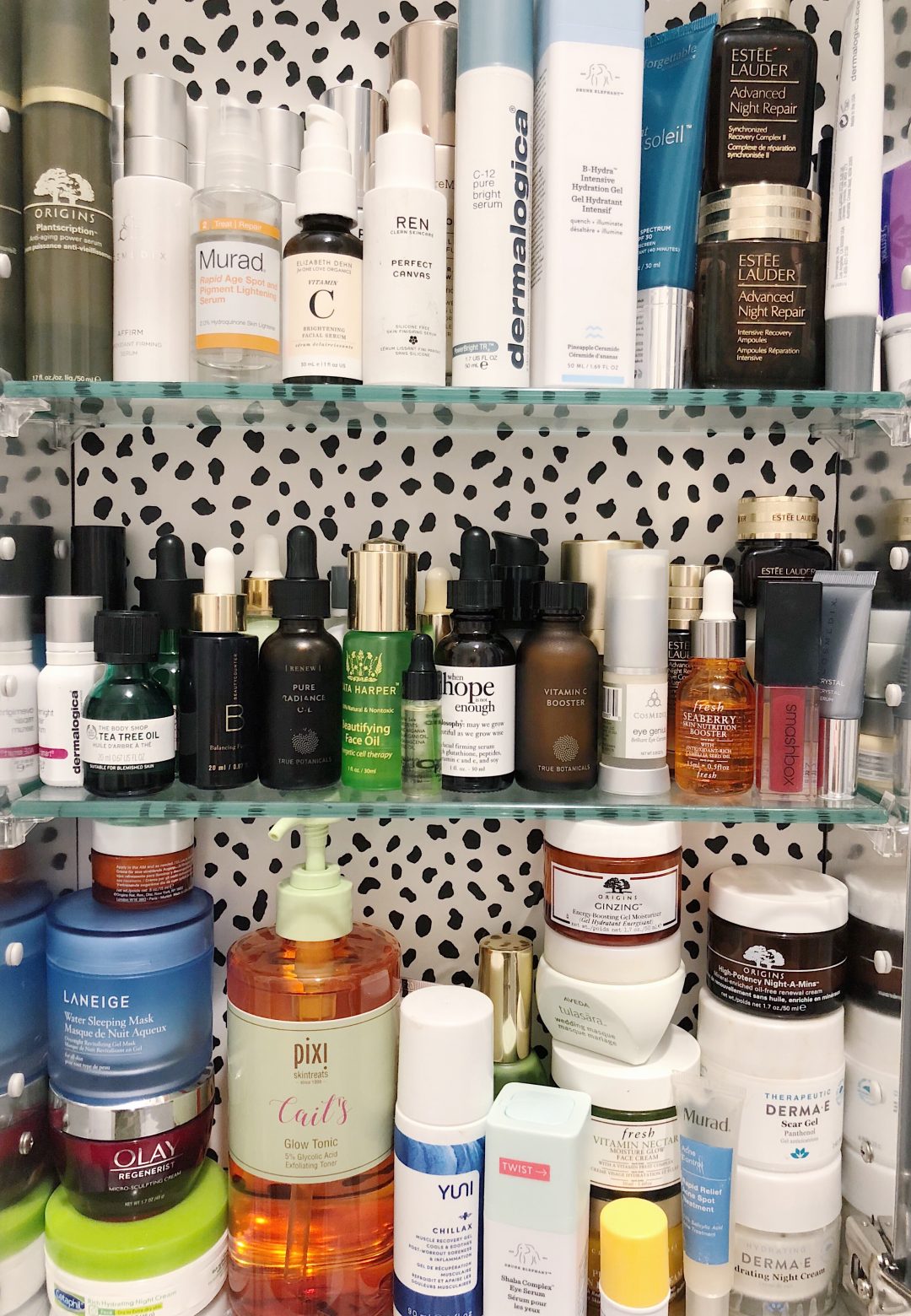
10 Things Your Esthetician Wants You To Know.
I recently had an incredible facial at SenSpa in the Presidio thanks to the team at Cosmedix, who has some of my very favorite skincare products. Throughout my treatment I had such an amazing conversation with my esthetician Stephanie and learned SO MUCH about how to take better care of my skin, even receiving detailed advice on which products to use AM & PM, plus other tips (like have you ever heard of icing your face?!). Afterwards I immediately sent her an email to see if she’d be open to sharing some wisdom here on the blog to pass along some of the top things your estetician wants you to know to help you have your absolute best skin.
So let’s dive in, shall we?!
1. Double cleansing is a must.
No, this isn’t a gimmick to get you to buy more cleanser. It’s legitimately necessary for optimal skin health. This is especially true if you wear cosmetics and/or physical sunscreens. The first cleanse removes dirt and makeup while the second cleanse removes oxidized sebum (oil) and dead skin cells. Why does this matter? Sebum is a natural protectant against environmental toxins and microorganisms and it’s also responsible for trapping in moisture. In order for active ingredients to work optimally and actually penetrate the skin, all excess oil must be removed.
2. Don’t pick your face, as in never, EVER!
This should go without saying but I can’t stress it enough. As a person who suffered with inflammatory acne for well over a decade I know how difficult it is to resist the urge to pick and purge. I don’t know anyone that wants to walk around with a giant whitehead on his or her face. I get it! The problem is that every time you attempt to extract a lesion from your skin your run the risk of spreading harmful bacteria, scarring, inducing PIH (post-inflammatory-hyperpigmentation), and causing more breakouts by irritating surrounding follicles (pores). Some tricks to quit-the-pick? Try performing your nighttime skin regimen with the lights off. If you can’t see it, you can’t pick it! Although this may sound silly and simple most people who pick their faces do it at night.
3. Regardless of your skin color, wearing sunscreen daily is mandatory.
My darker skinned clients are constantly telling me that they don’t need to use sunscreen and this statement couldn’t be further from the truth. Although darker skin has more melanin, our natural protection against UV light and aging, darker complexions face their own unique set of challenges with UV exposure. Some of these include hyperpigmentation (dark spots) and hypopigmentation (loss of pigment). Additionally pigmentary changes, i.e. potentially harmful skin cancers, are not as easy to spot on darker skin tones. A minimum of SPF 15 is mandatory and reapplication every two hours is essential regardless of skin color.
4. Antioxidants are a must in the fight against skin aging.
Antioxidants protect skin against free radicals that form in response to sunlight. Studies have shown that antioxidants can boost the photo protective ability of your sunscreen by up to 50%! Seeing as how 80-99% of the physical signs of aging are caused from UV light, think of antioxidants as insurance against Father Time marching right across your face.
5. You are what you eat.
As a reformed junk-food addict I can’t tell you how much I wish this wasn’t true. We all know people that can eat/drink whatever they want, never work out, and still look amazing! With over seventeen years of experience working on skin I can assure you that this is the exception, not the rule. Your skin needs proper nutrition to achieve a healthy, radiant glow. This is colossally true when your dealing with acne or other inflammatory skin conditions. There are countless studies documenting the negative effects of poor diet on the skin. I’m not suggesting you eliminate everything yummy but a diet rich in veggies, minimal in sugar and grains, and high in healthy forms of protein and fats will tremendously support gorgeous complexions.
6. Sleeping in your makeup is a HUGE no-no.
While you’re sleeping your body temperature rises and causes your follicles (pores) to soften and dilate slightly. If you’ve neglected to wash your face before bedtime all of the makeup, dirt, bacteria, environmental toxins, and oxidized oil are stuck to your skin. That left over gunk can lead to breakouts, inflammatory lesions, and skin sensitivity. I instruct my busy, time-pressed clients (which is most of them) to not wait until bedtime to perform their evening skin regimen. As soon as you’re home for the day, not facing the world or the sun again, take care of your skin. The longer you wait, the more likely it is that you’ll be taking a dirty face to bed with you.
7. Your face doesn’t end at your jawline
The skin on your face, neck, and chest (décolletage) get an almost identical amount of environmental exposure, which means they’re going to age the exact same way. Caring for the skin on your neck and chest is just as important as caring for the skin on your face. Bring all your skincare products, and I mean all, down your neck and onto your décolletage. Time and time again I see clients who have cared meticulously for the skin on their faces and ignored the rest. The result? Wrinkled, spotted, pigmented, loose skin everywhere but their faces. Our goal is to age slowly, hopefully very slowly, and uniformly. Treating the chest and neck, and if you’re extra diligent the backs of your hands and forearms, is a habit your future self will thank you for.
8. Not everyone needs to exfoliate.
Contrary to popular belief, exfoliation isn’t for everyone. If a person has rosacea, inflammatory lesions, or sensitive/sensitized skin their protective barrier is impaired. An impaired barrier equates to having less protective skin cells on the surface and the skin becomes compromised. If you exfoliate an already compromised skin you’ll be guaranteed an even more itchy, red, inflamed face in no time. The purpose of the skin is to protect against UV radiation, water loss, and microorganisms. When the barrier is intact, the skin does a pretty stellar job! It’s important to understand your specific and unique skin needs so that you’re using products that are helping, not hurting your complexion.
9. Facial Treatments shouldn’t be considered just a luxury.
Everyone likes to relax and get pampered and a delicious facial should be no exception. It’s important to note though that regular facials do much more than relax you and give your skin a little glow. Skin cells naturally turnover every 28-32 days and that number gradually increase as we age resulting in more dull, dead skin cells on the surface. After the age of twenty the skin produces roughly 1% less collagen and elastin per year, which can cause sagging. Sagging, hyperpigmentation, and dryness are what make the skin appear aged. Regular facial treatments help to smooth the skin, increase hydration, and even out skin tone. An added benefit is that people tend to be much more committed to their home care regimens when they’re seeing an Esthetician regularly. The gold standard is monthly facial treatments but even seasonally, every 2-3 months, is usually enough to keep your skin glowing and radiant.
10. The most effective skincare is consistent skincare.
Radiant skin doesn’t come from using $500 face creams despite what claims marketers would have you believe. It also doesn’t come from having an overly complicated skincare regimen that requires more time than your average workout! Radiant, healthy complexions are achieved from using the right ingredients and caring for your skin twice a day, everyday. There are plenty of great products on the market that are highly effective and won’t break the bank. Try to remember that packaging, smell, color, texture, and cost have absolutely nothing to with quality. Consumer goods are designed to be esthetically appealing and the skincare industry is no exception. This creates a slew of problems because the products that most consumers find visually appealing usually have the worst ingredients and results. When choosing the right skincare products its important to read labels and look for quality ingredients versus pretty packing and hefty price tags.






